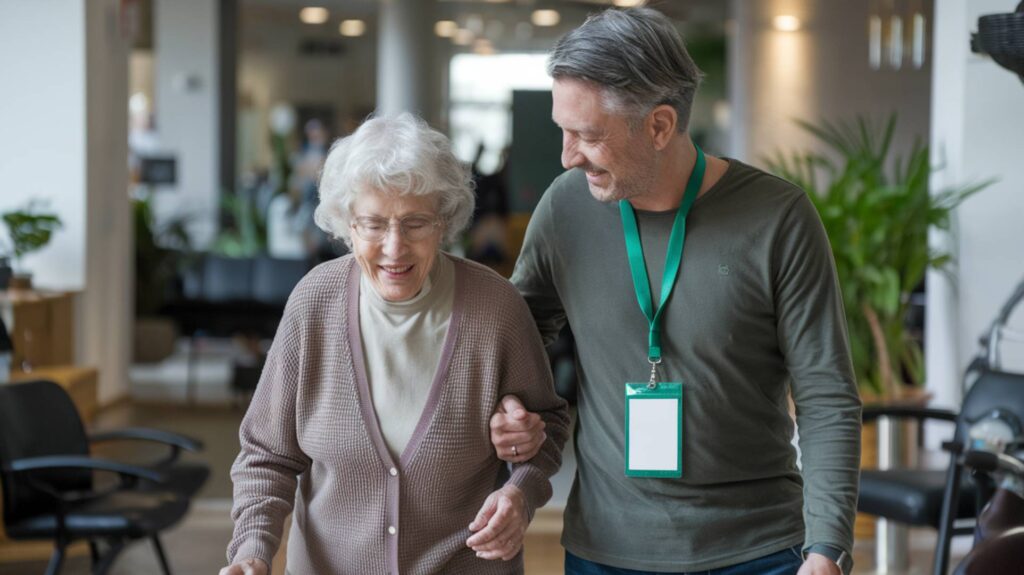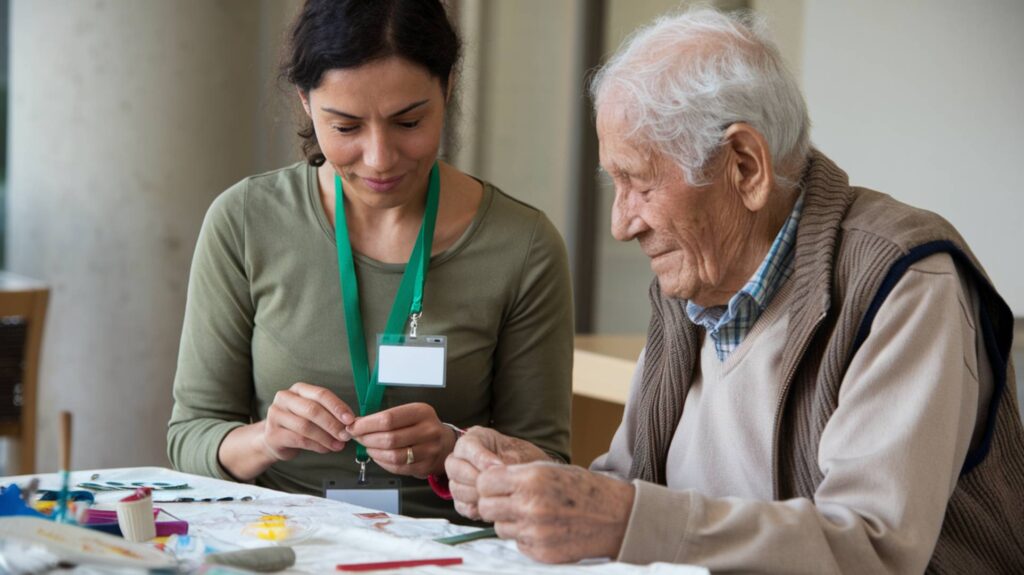
Have you ever wondered if you can be paid to care for a loved one?
Caring for an elderly parent is a responsibility many people take on out of love and duty. However, providing full-time care can impact financial stability, career prospects, and personal well-being. With the rising costs of professional care, families often ask: Can my elderly mother pay me to care for her? The answer depends on various legal, financial, and ethical considerations.
This blog explores how family carers can receive payment, the legal framework involved, and the financial support available for those providing essential care at home.
Receiving Payment for Caring for a Loved One

Private Payment Arrangements
If an elderly parent has the mental capacity and financial means, they can choose to pay a family member for care. However, this should be a formal arrangement with clear terms. A written agreement should outline:
- The type of care provided
- Hours of care per week
- Payment amount based on local care costs
- Any conditions or expectations
This documentation ensures transparency and protects both parties from misunderstandings.
Setting a Fair Rate
Family carers are typically paid around 20% less than professional carers due to exemptions from certain tax regulations. However, it is important to:
- Check HM Revenue and Customs (HMRC) guidelines for tax obligations.
- Ensure the payment reflects a fair rate in line with local care costs.
- Keep accurate records of hours worked and payments received.
If in doubt, seeking legal or financial advice can provide clarity on managing these payments.
What If My Loved One Lacks Mental Capacity?
If an elderly parent is no longer able to make financial decisions due to conditions like dementia, a family carer cannot simply start receiving payment. In these cases, legal oversight is required to prevent financial exploitation.
Court of Protection and Office of the Public Guardian
To arrange payments when a loved one lacks mental capacity:
- Apply to the Court of Protection – This legal process ensures any financial transactions are in the best interests of the person receiving care.
- Conduct a Care Needs Assessment – This assessment determines the level of care required and an appropriate payment structure.
- Seek Approval from the Office of the Public Guardian (OPG) – This organisation ensures that appointed deputies or attorneys act fairly on behalf of the care recipient.
Failing to follow this legal process can lead to complications, so obtaining professional legal advice is advisable.
Financial Support for Family Carers
For those unable to secure private payments, government benefits and local authority funding provide some financial relief.
Carer’s Allowance
Carer’s Allowance is a government benefit available to those providing care for someone with a long-term illness or disability.
Eligibility requirements:
- Must be aged 16 or over
- Must provide at least 35 hours of care per week
- The person being cared for must receive a qualifying disability benefit
- Earnings must be below a set threshold
- Must be a UK resident
As of 2024, the Carer’s Allowance rate is £81.90 per week. However, receiving this benefit can impact other financial support both the carer and the care recipient receive.
How to apply: Applications can be submitted online through the UK government website or via a paper form.

Attendance Allowance vs. Carer’s Allowance
These two benefits serve different purposes:
- Attendance Allowance is paid directly to the person needing care to cover related expenses.
- Carer’s Allowance is paid to the carer as financial support.
If a loved one receives Attendance Allowance, they may choose to use these funds to pay a family member for care.
Council-Funded Direct Payments
Local councils offer financial support through direct payments, allowing care recipients to arrange their own care services. However, these funds cannot usually be used to pay a close family member who lives in the same household.
Exceptions to the Rule
Some councils may allow payments to family members when:
- The care recipient has complex medical needs requiring a trusted carer.
- Language or cultural factors make external care unsuitable.
- The person receiving care has dementia and relies on a familiar carer.
As policies vary by local authority, carers should contact their council’s social care department for specific guidance.
Legal Considerations for Family Carers
For those managing a loved one’s finances, legal arrangements must be in place to ensure payments are handled correctly.
Power of Attorney and Deputyship
If an elderly parent lacks the capacity to make financial decisions, a Lasting Power of Attorney (LPA) or deputyship through the Court of Protection is required.
The Court of Protection determines:
- Whether a family carer should be paid
- The payment amount, based on the individual’s financial situation
- Whether adjustments are needed as care needs change
Seeking professional advice ensures compliance with legal requirements and protects the care recipient’s best interests.
Additional Financial Support for Carers
Family carers may be eligible for further financial support, including:
- Council Tax Reduction – Discounts for carers in certain situations.
- Winter Fuel Payment & Cold Weather Payment – Help with heating costs.
- TV Licence Concessions – Discounts for carers receiving Pension Credit.
- Carer’s Credit – National Insurance credits for those providing care but not eligible for Carer’s Allowance.
Can More Than One Person Claim Carer’s Allowance?
No. Only one person can claim Carer’s Allowance for each care recipient. If multiple family members provide care, they must decide who will claim the benefit.
Providing Safe and Reliable Care
Caring for an elderly loved one can be demanding, particularly if balancing other responsibilities. When additional support is needed, Home Instead New Forest offers professional, compassionate home care services tailored to your loved one’s needs.
Our services include:
- Personal care and companionship
- Specialist dementia care
- Respite for family carers
- Help with daily activities such as bathing, dressing, and medication reminders
With trained caregivers and flexible care options, we ensure your loved one receives high-quality support in the comfort of their home.
Final Thoughts
While it is possible to be paid as a family carer, the process depends on legal and financial factors. Whether through private arrangements, Carer’s Allowance, or council-funded payments, family carers should ensure they follow the correct procedures to protect both themselves and their loved ones.
Understanding legal requirements, seeking professional guidance, and exploring financial support options can make caring for an elderly parent more sustainable.
If you need additional support, Home Instead New Forest is here to help. Contact us today to learn more about how our compassionate home care services can support your family.

